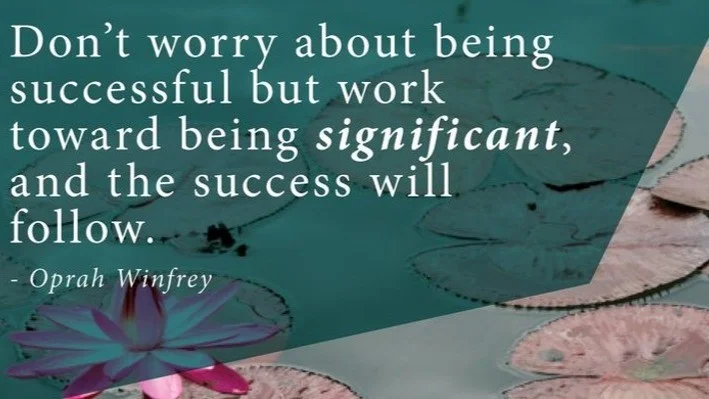Last week, I talked about Sir Ratan Tata’s life and teachings. One of the most important things I learned from him was the idea of striving for “significance beyond success.” The more I think about it, the more I believe its pursuit is valuable across various dimensions of our lives. And, this pursuit is possible only by making it core to values and belief systems that govern our own personal actions as much as they do the brands and businesses we lead and manage.
Striving for significance suggests a significant shift in our mindset, making us focus on creating a lasting, meaningful impact to benefit the larger community. When we aim for significance, a higher purpose guides our actions and intent, anchored in ethical practices, sustainability, and social responsibility. It means using our skills and influence to make positive changes, mentoring others, nurturing talent, supporting innovation, speaking up for important causes, and creating more inclusive environments where others can thrive.
Pursuing significance over mere success in the workplace means focusing on impact, purpose, and values rather than just profits or accolades, fostering more profound and meaningful connections across stakeholders.
One prominent example is Patagonia, which has woven environmental activism into its core mission. Rather than solely pursuing profits, they encourage customers to buy less and repair their products. Their “1% for the Planet” initiative pledges a portion of sales to environmental causes, demonstrating that significant corporate responsibility can coexist with commercial viability.
Another example is TOMS Shoes, which adopted a one-for-one model: for every pair of shoes sold, a pair is donated to a child in need, emphasizing social impact over financial gain, reinforcing that success is not solely defined by revenue but also by the positive change a brand can affect.
Yet another example is Warby Parker, the eyewear company committed to providing affordable glasses while addressing vision impairment globally. For every pair of glasses sold, Warby Parker donates a pair to someone in need, underscoring their mission to improve lives through better vision while emphasizing social impact alongside their business success.
Closer home, with a long-standing commitment to social responsibility, Tata Group focuses on community development and ethical business practices. The group invests in education, healthcare, and rural development through initiatives like Tata Trusts, reflecting a commitment to improving lives nationwide. Amul, the dairy cooperative managed by the Gujarat Cooperative Milk Marketing Federation (GCMMF), is famous for its “Anand Model” of cooperative dairy farming. Amul empowers millions of farmers by ensuring fair prices and promoting local milk production, contributing to rural development and economic stability.
So, in summary, what does pursuing significance over success mean? To me, it means the following:
- We are making a significant shift in our mindset by focusing on delivering a larger, meaningful, and lasting impact to benefit a broader and more diverse community.
- A higher purpose guides our actions, ensuring we remain committed to ethical practices, sustainability, and social responsibility, not just profits or accolades.
- We use our skills and influence to champion important causes, support innovations and new thinking, mentor and nurture talent, valuing individual contributions while creating inclusive environments for as many to thrive.
- We commit ourselves to staying curious, adaptable, and open to new perspectives and experiences, actively and willfully embracing a path of continuous discovery, learning, and growth.
I believe that embracing the above codes will propel us toward significance in our business and personal lives. Our relentless pursuit of significance will undoubtedly fuel our growth as individuals and communities, driven by our shared vision, collective wisdom, compassion, and responsibility to continually evolve and enrich our civil society.
